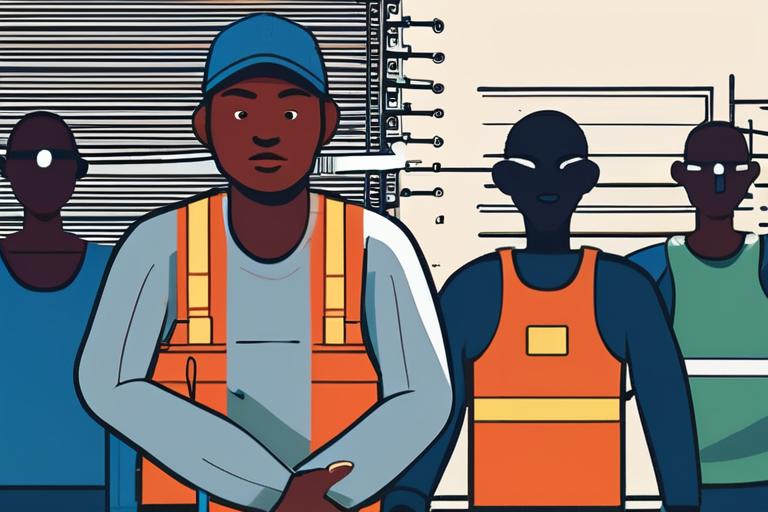Haitian Migrants at JBS Plant Accused of Human Trafficking and Exploitation


Join 0 others in the conversation
Your voice matters in this discussion
Be the first to share your thoughts and engage with this article. Your perspective matters!
Discover articles from our community

 Hoppi
Hoppi

 Hoppi
Hoppi

 Hoppi
Hoppi

 Hoppi
Hoppi

 Hoppi
Hoppi

 Hoppi
Hoppi

GERMANY'S POPULARITY GROWS IN TURKEY: LANGUAGE BECOMES SECOND MOST STUDIED AFTER ENGLISH ANKARA, TURKEY - SEPTEMBER 13, 2025 - The …

Hoppi

Gaza City Palestinians Flee Israeli Assault Amid Widespread Destruction GAZA CITY, GAZA STRIP - Thousands of families scrambled to escape …

Hoppi

The iPhone Air Deal of a Lifetime: How to Qualify for $830 Off Imagine walking into your local AT&T store, …

Hoppi

Satellites Confirm 1990s Sea-Level Predictions Were Shockingly Accurate A team of researchers from Tulane University has made a groundbreaking discovery …

Hoppi

Radiohead's "Let Down" Returns to Mainstream Charts Thanks to TikTok Surge A 1997 Radiohead song has made its way to …

Hoppi

CZ's Family Office Deepens Stake in Ethena Labs Amid USDe Stablecoin Surge to $13B In a significant move, YZi Labs, …

Hoppi